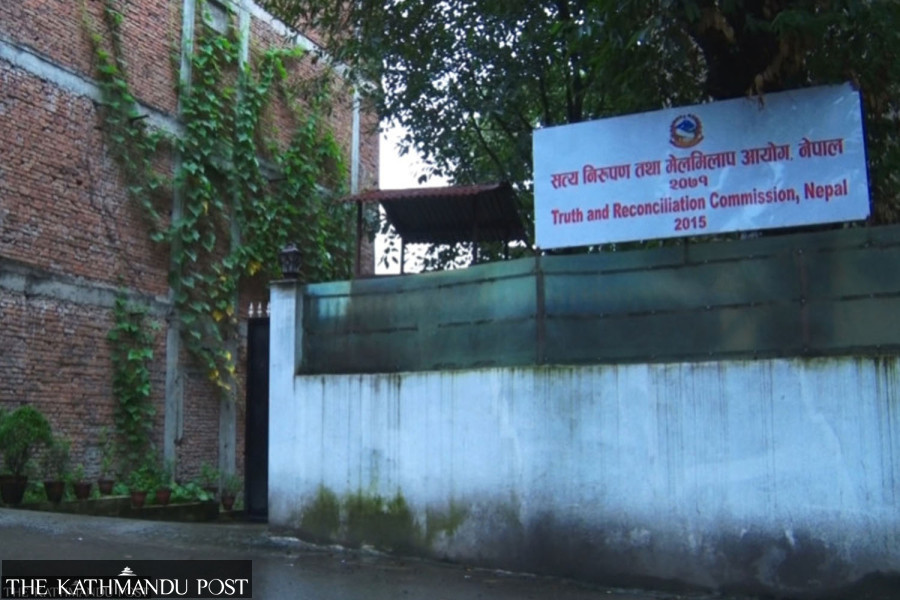Politics
Transitional justice selection to proceed ignoring victims’ calls
Despite assurances, no victim is on the shortlist. Panel cites missing documents, says ‘pocket picks’ rejected.
Binod Ghimire
The committee to recommend office bearers for the transitional justice commissions is starting the final rounds of selection on Wednesday, while conflict victims continue to call for the scrapping of the current selection process.
Eleven of the shortlisted candidates, including eight for chairperson, will present their visions for leading the commissions, before the committee on Wednesday. Other presentations are scheduled for Thursday and Friday. Among the 111 applicants, 34 have been shortlisted for the 10 positions in the Truth and Reconciliation Commission and the Commission of Investigation on Enforced Disappeared Persons.
“The presentations will be held over three days. We shortlisted the candidates based on competence, and the best candidates will be recommended for appointment,” Lily Thapa, a selection committee member representing the National Human Rights Commission, told the Post.
However, conflict victims opposed to the selection process have been putting pressure on the top political leadership to start a new process that ensures their meaningful participation. They claim the current process is not consultative, politically influenced, and lacks credibility. On May 1, thirty-six victims’ organisations came together to reject the selection process, questioning the competence and integrity of the selected candidates, mainly for the chairpersons.
They submitted their memorandum to the constitutional rights watchdog on Friday, demanding it withdraw its representative from the committee. They submitted another memorandum to Prime Minister and CPN-UML Chair KP Sharma Oli on Sunday calling for a fresh selection process involving proper consultation with victims.
Victims’ representatives also met Nepali Congress President Sher Bahadur Deuba and CPN (Maoist Centre) chair Pushpa Kamal Dahal with similar demands. They also submitted a memorandum to home minister Ramesh Lekhak.
Suman Adhikari, founding chair of the Conflict Victims Common Platform who was present in the meetings, said Deuba assured them of two victims’ representatives in each commission. However, as victims’ representatives have not been included in the shortlist—even though the committee had received their applications through different organisations—there is no chance of their appointment.
“Appointing victims as office bearers would be a conflict of interest,” said a member of the committee saying there is no possibility of including new names on the shortlist, against what Deuba had assured.
During the meeting, Dahal had said he would take an initiative to hold a meeting of top political leaders, victims’ representatives, and the recommendation committee led by former chief justice Om Prakash Mishra.
“However, no such meeting has been fixed,” said Adhikari. “The recommendation committee is bent on pressing ahead without any corrections. I want to remind everyone that commissions that lack credibility won’t function. We have all seen how the two past commissions failed.”
On Tuesday, 10 human rights organisations, through a joint statement, backed the victims’ demands.
“It is an established fact that this process cannot succeed unless it is victim-centred. That 36 organisations representing the entire victim community have come together to publicly announce that they do not take ownership of the selection process is not a trivial matter—it is a serious issue,” reads their statement. “The flawed selection process is a matter of concern not only for the victim community and civil society but for the entire country.”
They have said that the victim community and civil society have time and again called for credibility and legitimacy in appointments, which requires consultation with victims, clear methods, procedures, and criteria for evaluating candidates’ suitability, transparency, and background checks.
“We appeal to the government of Nepal to take all necessary and appropriate steps to respond meaningfully, through consultation, dialogue, and negotiation, to the serious warnings, concerns, and interests of the conflict victim community and to ensure the credibility of the selection process,” the 10 organisations have further said.
Contrary to the victims’ claims, the committee claims to have followed the due process and consulted stakeholders. “Not just in groups, we have talked in person, for hours, with individual victim representatives and human rights activists,” said Thapa. “Those advocating for transparency in public are putting pressure on us to include names picked from their own pockets. This is not acceptable.”
She said they couldn’t include some individuals recommended by victims’ organisations as the nominees refused to provide required documents including citizenship details.
“I can confidently claim that we have not made any compromise in the selection process,” said Thapa.




 8.79°C Kathmandu
8.79°C Kathmandu














